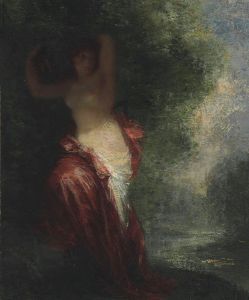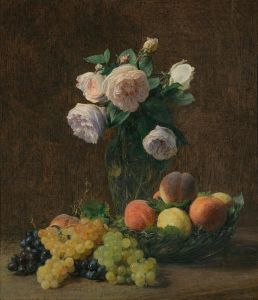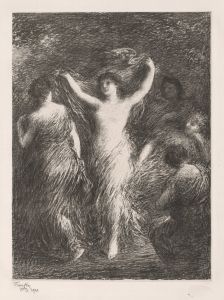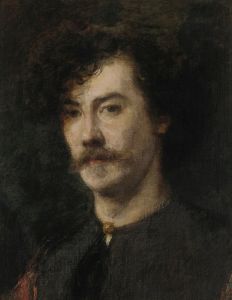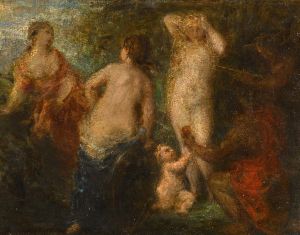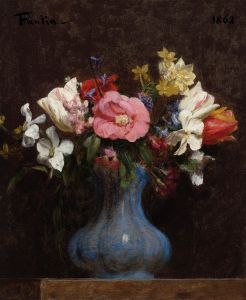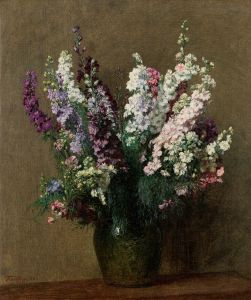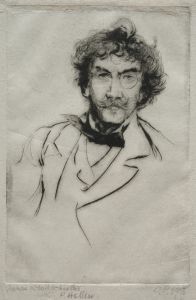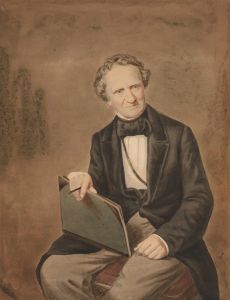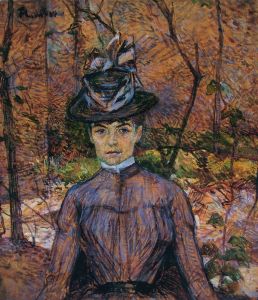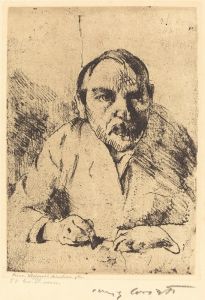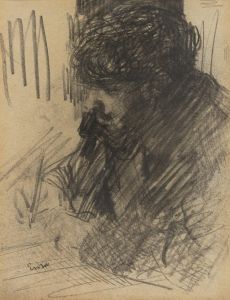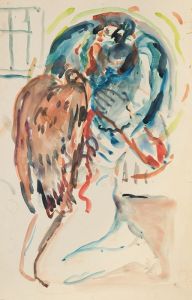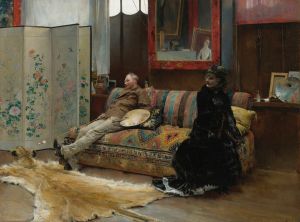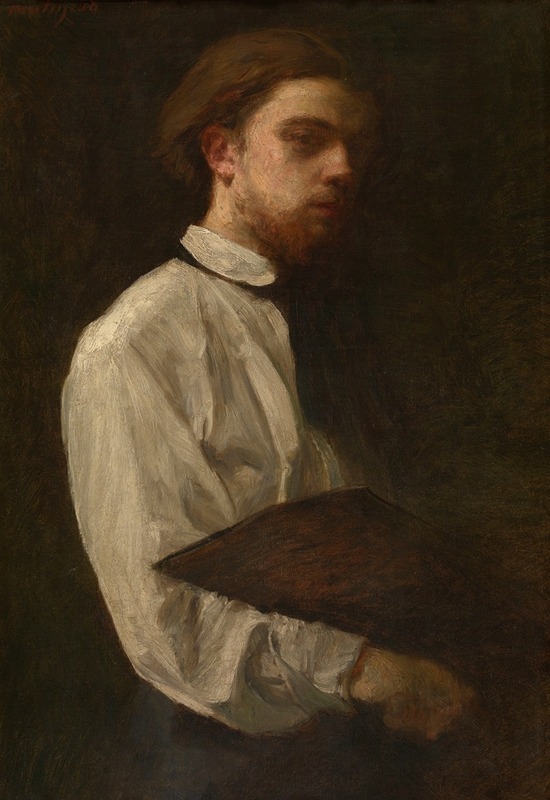
Self Portrait
A hand-painted replica of Henri Fantin-Latour’s masterpiece Self Portrait, meticulously crafted by professional artists to capture the true essence of the original. Each piece is created with museum-quality canvas and rare mineral pigments, carefully painted by experienced artists with delicate brushstrokes and rich, layered colors to perfectly recreate the texture of the original artwork. Unlike machine-printed reproductions, this hand-painted version brings the painting to life, infused with the artist’s emotions and skill in every stroke. Whether for personal collection or home decoration, it instantly elevates the artistic atmosphere of any space.
Henri Fantin-Latour, a notable French painter known for his exquisite still lifes and group portraits, created several self-portraits throughout his career. One of these self-portraits, simply titled "Self Portrait," is a significant work that reflects both his technical skill and his introspective nature. Fantin-Latour was born on January 14, 1836, in Grenoble, France, and he developed an early interest in art, studying at the École des Beaux-Arts in Paris. He was deeply influenced by the Old Masters and was known for his meticulous attention to detail and his ability to capture the essence of his subjects.
The "Self Portrait" by Henri Fantin-Latour is a testament to his ability to convey mood and personality through portraiture. In this work, Fantin-Latour presents himself with a direct gaze, engaging the viewer with a sense of calm and introspection. The portrait is characterized by its subdued color palette and soft brushwork, which are hallmarks of Fantin-Latour's style. The artist's use of light and shadow adds depth to the portrait, highlighting his facial features and creating a sense of three-dimensionality.
Fantin-Latour's self-portraits are often noted for their psychological depth. In this particular work, he captures not only his physical likeness but also a sense of his inner world. The expression on his face is contemplative, suggesting a thoughtful and introspective personality. This aligns with what is known about Fantin-Latour's character; he was known to be a reserved and thoughtful individual, often preferring the solitude of his studio to the bustling social scenes of Paris.
Throughout his career, Fantin-Latour maintained a close association with other artists and intellectuals of his time, including the Impressionists, although he never fully embraced their style. He was a contemporary of artists like Édouard Manet and Edgar Degas, and he shared their interest in capturing modern life, though his approach remained more traditional. His self-portraits, including this one, reflect his commitment to realism and his admiration for the techniques of the Old Masters.
Fantin-Latour's "Self Portrait" is also significant in the context of his broader body of work. While he is perhaps best known for his still lifes of flowers and fruit, his portraits reveal another dimension of his artistic talent. They demonstrate his ability to capture the human spirit and convey complex emotions through subtle details and nuanced expressions.
The painting is housed in a collection that appreciates the historical and artistic value of Fantin-Latour's work. His self-portraits, including this one, continue to be studied and admired for their technical excellence and their ability to convey the artist's introspective nature. Henri Fantin-Latour passed away on August 25, 1904, in Buré, France, leaving behind a legacy of works that continue to be celebrated for their beauty and depth.
In summary, Henri Fantin-Latour's "Self Portrait" is a remarkable example of his skill as a portraitist and his ability to convey the introspective nature of his subjects. Through his use of light, shadow, and subtle expression, Fantin-Latour captures a moment of quiet reflection, offering viewers a glimpse into his character and artistic philosophy.





